 Canon of the Apostle, in Tone VIII
Canon of the Apostle, in Tone VIII
Ode I, Irmos: The staff of Moses, once working a wonder, striking the sea in the form of the Cross and dividing it, drowned the mounted tyrant Pharaoh, and saved Israel who fled on foot, chanting a hymn unto God.
Holy All-Praised Apostle and Evangelist, John the Theologian, pray to God for us.
In that thou wast pure and beloved of the incorruptible light, thou didst recline, resting against His breast, and with thy bold soul didst draw forth from the Abyss of wisdom the light of understanding, O blessed Apostle John.
Holy All-Praised Apostle and Evangelist, John the Theologian, pray to God for us.
In that thou wast pure and beloved of the incorruptible light, thou didst recline, resting against His breast, and with thy bold soul didst draw forth from the Abyss of wisdom the light of understanding, O blessed Apostle John.
Holy All-Praised Apostle and Evangelist, John the Theologian, pray to God for us.
Theologising supernaturally, thou didst thunder forth, O beloved of Christ: “In the beginning was the Word, as alive and hypostatic as His Father; and the Word was God; and the Word became flesh, and remained God immutable.”
Most Holy Mother of God, save us.
Fleeing beneath thy protection, O pure one, we are buried beneath all the perils which befall us, O all-pure one. Wherefore, we now beseech thee: From the depths of transgressions raise up the fallen by thy divine entreaties, O pure one.
Canon of the venerable one, in the same tone
Irmos: The staff of Moses…
Venerable Father, Arsenius, pray to God for us.
Submitting to the divine precept of the Master, thou didst abandon the glory of royal wealth, as did Moses the law-giver; and fleeing from men, thou becamest a dweller with the angels, rejoicing with them.
Venerable Father, Arsenius, pray to God for us.
Submitting to the divine precept of the Master, thou didst abandon the glory of royal wealth, as did Moses the law-giver; and fleeing from men, thou becamest a dweller with the angels, rejoicing with them.
Glory be to the Father, and to the Son, and to the Holy Spirit.
Fleeing from turmoil, O Arsenius, thou didst restrain thy tongue with silence as it were a spring of sin; wherefore, in stillness thou didst preserve thy mind untroubled, becoming a right magnificent house of rest for the divine Spirit.
Now and ever, and unto the ages of ages. Amen.
All-glorious things have been said of thee among generations of generations, O Mary Theotokos who contained God the Word in thy womb, and remained pure. Wherefore, we all honour thee as our help after God.
Ode III, Irmos: O Christ, Who in the beginning established the heavens in wisdom and founded the earth upon the waters, make me steadfast upon the rock of Thy commandments; for none is holy as Thee, O Thou Who lovest mankind.
Holy All-Praised Apostle and Evangelist, John the Theologian, pray to God for us.
Among fishermen thou becamest a fisher of men and a theologian, O wise John, setting aside the love of thy father and that of the world, and following the Word and Master with divine desire.
Holy All-Praised Apostle and Evangelist, John the Theologian, pray to God for us.
Among fishermen thou becamest a fisher of men and a theologian, O wise John, setting aside the love of thy father and that of the world, and following the Word and Master with divine desire.
Holy All-Praised Apostle and Evangelist, John the Theologian, pray to God for us.
Having purified the eyes of thy soul, O theologian, thou didst behold the ineffable glory which doth emanate from the Word, the only-begotten Son of the Father, through Whom all things are wisely accomplished by the divine Spirit.
Most Holy Mother of God, save us.
We flee beneath thy saving refuge, O Virgin Theotokos, and find salvation from the assaults of the enemy by thy supplications; and we are delivered from the torment which is to come, O pure one.
Irmos: O Christ, Who in the beginning…
Venerable Father, Arsenius, pray to God for us.
O father Arsenius, the torn and exceedingly tattered rags of thy poverty, assumed in emulation of Christ, replaced the splendour of thy former robes, winning for thee vesture of ineffable glory.
Venerable Father, Arsenius, pray to God for us.
O father Arsenius, the torn and exceedingly tattered rags of thy poverty, assumed in emulation of Christ, replaced the splendour of thy former robes, winning for thee vesture of ineffable glory.
Glory be to the Father, and to the Son, and to the Holy Spirit.
Receiving help from God through contrition of heart, O father Arsenius, thou didst cast down the offences of the enemy and the boastful spirit, becoming a victor through humility.
Now and ever, and unto the ages of ages. Amen.
Thou wast shown to be more exalted than the cherubim and the seraphim, O Theotokos; for thou alone didst receive the infinite God within thy womb, O undefiled one. Wherefore, all of us, the faithful, bless thee with hymns, O pure one.
Lord, have mercy. Lord, have mercy. Lord, have mercy.
Kontakion of the Venerable One, Tone III, Spec. Mel. “Today the Virgin…”: From Rome thou didst shine forth like the great sun, and thou didst reach the imperial city, O all-blessed one, illumining it with thy words and deeds and dispelling all the darkness of ignorance. Wherefore, we honor thee, O venerable Arsenius, thou glory of the fathers.
Ikos: Hearkening to the voice of the Lord, and forsaking the beauties of this world, O divinely wise one, thou didst enter upon the monastic life, emulating the life of the angels. Wherefore, thou wast shown to be wholly transformed, an angel in the body, offering to Christ fasting and tears, blameless prayer and standing all night. Thus thou becamest a temple of the Trinity, a model for monks, an instructor in the virtues and a fervent advocate for those who ever honor thee. Therefore, we honor thee, O venerable Arsenius, thou glory of the fathers.
Sessional hymn, Tone VIII, Spec. Mel. “Of the Wisdom…”: Having reclined against the breast of Wisdom and learned an understanding of things, thou didst thunder forth divinely: “In the beginning was the Word!”, being the first to record the unoriginate begetting; and thou hast proclaimed to all the incarnation of the Word. Wherefore, fishing for the nations, using thy tongue as a net, thou teachest the ends of the earth by the grace of the Spirit, and dost enlighten them with miracles. O theologian and apostle, entreat Christ God, that He grant remission of sins unto those who with love celebrate thy holy memory.
Glory be to the Father, and to the Son, and to the Holy Spirit; now and ever, and unto the ages of ages. Amen.
Sessional Hymn of the Venerable One, the same tone & melody: Fleeing the tumults of the world and perfecting thy life in stillness, thou didst mortify the passions and furnish thy mind with wings to soar aloft to God; and thou wast shown to be a pillar of fire and a luminary for all the faithful who honour thee. And thou didst show thyself to be a fruitful tree watered by showers of tears. O God-bearing Arsenius, entreat Christ God, that He grant remission of offences unto those who honour thy holy memory with love.
Ode IV, Irmos: Thou art my strength, O Lord, Thou art my power; Thou art my God, Thou art my joy, Who, without leaving the bosom of the Father, hast visited our lowliness. Wherefore, with the Prophet Habbakuk I cry unto Thee: Glory to Thy power, O Thou Who lovest mankind!
Holy All-Praised Apostle and Evangelist, John the Theologian, pray to God for us.
The Lord called thee the son of thunder and vouchsafed through the Spirit that thou thunder forth that He was ineffably begotten of the Father divinely and unapproachably; wherefore, with hymns we glorify as is meet thy most festive memory, O theologian.
Holy All-Praised Apostle and Evangelist, John the Theologian, pray to God for us.
The Lord called thee the son of thunder and vouchsafed through the Spirit that thou thunder forth that He was ineffably begotten of the Father divinely and unapproachably; wherefore, with hymns we glorify as is meet thy most festive memory, O theologian.
Holy All-Praised Apostle and Evangelist, John the Theologian, pray to God for us.
Thou didst mount to the heights by the virtues, O apostle, and didst behold the only-begotten Word shining forth with glory in the flesh, Who sitteth eternally in the bosom of the Father; and thou wast vouchsafed to hear the voice of the Father, Who bore witness that He was His Son.
Most Holy Mother of God, save us.
As I now flee to thine aid, O most immaculate one, let me not, thy useless servant, be put to shame; for thee do I have as an intercessor before God and an impregnable bulwark. In thee may I enjoy the tranquility and divine life which is to come, I pray.
Irmos: Thou art my strength, O Lord…
Venerable Father, Arsenius, pray to God for us.
Thou hast shown thyself to be a constrainer of nature, O father Arsenius, for thou didst make the passions subject to the dominion of thy mind, commanding sleep as though it were a servant. Wherefore, thou didst cry out amid thine all-night vigils: Glory to Thy power, O Thou Who lovest mankind!
Venerable Father, Arsenius, pray to God for us.
Thou hast shown thyself to be a constrainer of nature, O father Arsenius, for thou didst make the passions subject to the dominion of thy mind, commanding sleep as though it were a servant. Wherefore, thou didst cry out amid thine all-night vigils: Glory to Thy power, O Thou Who lovest mankind!
Glory be to the Father, and to the Son, and to the Holy Spirit.
Thou didst seek after God with all thy desire, O venerable one. Thou didst greatly desire Him Who had revealed Himself, and having become wholly godly in appearance through purity, thou didst converse with Him Whom thou didst desire, gaining understanding through a union past all attainment, O father Arsenius.
Now and ever, and unto the ages of ages. Amen.
Thou art the boast of the faithful, O unwedded one; thou art the intercessor and refuge of Christians, their rampart and haven: for thou bearest supplications to thy Son, O most immaculate one, and savest from misfortunes those who with faith and love acknowledge thee to be the pure Theotokos.
Ode V, Irmos: Wherefore hast Thou turned Thy face from me, O Light never-waning? And why hath a strange darkness covered me, wretch that I am? But turn me, and guide my steps to the light of Thy commandments, I pray.
Holy All-Praised Apostle and Evangelist, John the Theologian, pray to God for us.
Beholding the all-pure Light Who shone forth amid the darkness of the world, thou wast transformed by love; and as a beacon of piety, O John, thou didst illumine with the light of theology the generations of populous nations.
Holy All-Praised Apostle and Evangelist, John the Theologian, pray to God for us.
Beholding the all-pure Light Who shone forth amid the darkness of the world, thou wast transformed by love; and as a beacon of piety, O John, thou didst illumine with the light of theology the generations of populous nations.
Holy All-Praised Apostle and Evangelist, John the Theologian, pray to God for us.
Having learned that the shadowy law was given by Moses, but that divine grace came about through Christ our God, O beloved son of thunder, thou didst proclaim His divinity with the language of theology.
Most Holy Mother of God, save us.
Thou art my protection and might, my confirmation and indestructible rampart, O all-pure one, and I call upon thee: Night and day preserve me from all the harm wrought by Belial, that I may glorify thee with faith and love.
Irmos: Wherefore hast Thou turned Thy face from me…
Venerable Father, Arsenius, pray to God for us.
Perceiving well the wiles of the enemy, O father, thou didst piously reject the instigator of the primeval disobedience of Adam the first created; wherefore, dancing in the immaculate haven of sustenance, entreat Christ the Master.
Venerable Father, Arsenius, pray to God for us.
Perceiving well the wiles of the enemy, O father, thou didst piously reject the instigator of the primeval disobedience of Adam the first created; wherefore, dancing in the immaculate haven of sustenance, entreat Christ the Master.
Glory be to the Father, and to the Son, and to the Holy Spirit.
Denying thyself, thou didst reject all luxury; and bearing thy cross upon thy shoulder and desiring Christ, O Arsenius, thou wast fittingly shown to be a fellow heir in the heavens.
Now and ever, and unto the ages of ages. Amen.
As thou hast maternal boldness before thy Son, O most pure one, disdain not thought of thy kinship with us, we pray; for thee alone do we set before the Master as our cleansing, seeking mercy.
Ode VI, Irmos: The abyss of my sins and the tempest of my transgressions discomfit me and thrust me down into the depths of violent despondency; but stretch forth Thy mighty arm unto me, as Thou didst to Peter, and save my, O my Guide.
Holy All-Praised Apostle and Evangelist, John the Theologian, pray to God for us.
Isaiah beheld in an image the burning Coal of the divine fire which purified his lips, and He was vouchsafed prophecy; and thou, O blessed John, wast shown to recline against the breast of God the Word incarnate.
Holy All-Praised Apostle and Evangelist, John the Theologian, pray to God for us.
Isaiah beheld in an image the burning Coal of the divine fire which purified his lips, and He was vouchsafed prophecy; and thou, O blessed John, wast shown to recline against the breast of God the Word incarnate.
Holy All-Praised Apostle and Evangelist, John the Theologian, pray to God for us.
The only-begotten Word Who sitteth in the bosom of the Father was seen incarnate, O blessed John, and told thee, as the beloved initiate of His mysteries, that thou wouldst see the incorporeal God Whom no-one can behold.
Most Holy Mother of God, save us.
Illumine my soul, O most hymned Virgin Theotokos who gavest birth to the Effulgence of the Father’s glory; for, having thy true grace, we abstain from blasphemous speech.
Irmos: The abyss of my sins…
Venerable Father, Arsenius, pray to God for us.
Through dispassion thou didst piously mortify thy carnal understanding, not loving an earthly inheritance, O venerable father Arsenius, but desiring to receive from Christ an inheritance in the highest.
Venerable Father, Arsenius, pray to God for us.
Through dispassion thou didst piously mortify thy carnal understanding, not loving an earthly inheritance, O venerable father Arsenius, but desiring to receive from Christ an inheritance in the highest.
Glory be to the Father, and to the Son, and to the Holy Spirit.
The sun which appeared interrupted thine all-night standing, but the incomparable effulgence of the noetic Sun shone forth amid the night of thy life of labors, to enlighten thee, O Arsenius.
Now and ever, and unto the ages of ages. Amen.
As thou hast compassion, in that thou gavest birth to the Word Who loveth man, save us from bitter and cruel peril; for thee alone, O all-pure Mistress, have we, the faithful, acquired as an invincible help.
Lord, have mercy. Lord, have mercy. Lord, have mercy.
Glory be to the Father, and to the Son, and to the Holy Spirit; now and ever, and unto the ages of ages. Amen.
Kontakion of the apostle, Tone II: Who can recount thy mighty works, O virgin apostle? For thou pourest out miracles and dost cause healings to flow forth; and thou prayest for our souls, in that thou art a theologian and the friend of Christ.
Ikos: It is a bold and unattainable thing to study the heights of heaven and to plumb the depths of the sea; for as it is impossible to calculate the number of the stars and the sands of the shore, so is it impossible to speak sufficiently of the theologian, whom Christ loved and hath crowned with so many crowns. For, reclining against His breast, he ate with Him at the mystical supper, in that he is a theologian and friend of Christ.
Ode VII, Irmos: Once, in Babylon, the fire stood in awe of the condescension of God; wherefore, the youths, dancing with joyous step in the furnace, as in a meadow, chanted: Blessed art Thou, O God of our fathers!
Holy All-Praised Apostle and Evangelist, John the Theologian, pray to God for us.
Thou didst diligently depart from the bonds of matter, O most blessed one, as an intercessor before God, and as a herald of divinely inspired theology thou hast taught all to cry: Blessed art Thou, O God of our fathers!
Holy All-Praised Apostle and Evangelist, John the Theologian, pray to God for us.
Thou didst consider gold and riches to be like the grass, O most blessed one, and by the action of God thou didst transform hay into gold when thou didst theologise concerning the Creator and Lord, crying: Blessed art Thou, O God of our fathers!
Holy All-Praised Apostle and Evangelist, John the Theologian, pray to God for us.
The Holy Spirit Who proceedeth from the unoriginate Father do we accept as indivisible from Thee, O only-begotten Word of God; and Thou didst call upon the apostles to cry: Blessed art Thou, O God of our fathers!
Most Holy Mother of God, save us.
Thou wast the temple and palace of Christ the King; thou alone wast the couch of Solomon, which, as saith the Scriptures, sixty of the mighty surround. And with thee, O Virgin do they cry out and chant: Blessed art Thou, O God of our fathers!
Irmos: Once, in Babylon, the fire stood in awe…
Venerable Father, Arsenius, pray to God for us.
Mindful of the perniciousness of thy former ointments, and enduring fœtor for their sake, O father Arsenius, through partaking of grace thou didst become a sweet fragrance, and didst cry out: Blessed art Thou, O God of our fathers!
Venerable Father, Arsenius, pray to God for us.
Entering into the divine darkness in the body, O father Arsenius, and having learned to recognise the unoriginate Father and the Spirit in Christ , thou didst hymn the Unity in Trinity, crying: Blessed art Thou, O God of our fathers!
Glory be to the Father, and to the Son, and to the Holy Spirit.
Theologising in Orthodox fashion the only Father of the one only-begotten Son, we declare Thee the Lord of all, acknowledging Thine only upright Spirit, Who proceedeth from Him, shareth the same essence and is equally everlasting.
Now and ever, and unto the ages of ages. Amen.
Without knowing wedlock thou gavest birth in time to the Timeless One, O pure one, and didst bear the Word Who before was incorporeal, giving Him flesh. To Him do we chant together, crying: Blessed art Thou, O God of our fathers!
Ode VIII, Irmos: Madly did the Chaldæan tyrant heat the furnace sevenfold for thepious ones; but, beholding them saved by a higher Power, he cried out to the Creator and Deliverer: Ye children, bless; ye priests, hymn; ye people, exalt Him supremely for all ages!
Holy All-Praised Apostle and Evangelist, John the Theologian, pray to God for us.
As thine all-glorious memory is magnificent and right well renowned, O herald of the divinity of Christ, it hath shone forth upon the Church, perfuming it with godliness. Wherefore, rejoicing, we cry out, O ye faithful: Ye children, bless; ye priests, hymn; ye people, exalt Him supremely for all ages!
Holy All-Praised Apostle and Evangelist, John the Theologian, pray to God for us.
As thine all-glorious memory is magnificent and right well renowned, O herald of the divinity of Christ, it hath shone forth upon the Church, perfuming it with godliness. Wherefore, rejoicing, we cry out, O ye faithful: Ye children, bless; ye priests, hymn; ye people, exalt Him supremely for all ages!
Holy All-Praised Apostle and Evangelist, John the Theologian, pray to God for us.
Having the theologian as the leader of our choir, O Christ, We declare Thee, Who wast theologised by him, and the Father and the Spirit, to be God, and hymning the monarchy thereof, we cry: Ye children, bless; ye priests, hymn; ye people, exalt Him supremely for all ages!
Most Holy Mother of God, save us.
O most immaculate one, thou gavest birth to God the Word incarnate. Him do thou beseech, that He deliver me from fire; for, lo! my whole life hath become a burden and I have become wholly enslaved to cruel sins. Wherefore, I flee to thee, O Virgin, and call upon thee, the joyous one.
Irmos: Madly did the Chaldæan tyrant…
Venerable Father, Arsenius, pray to God for us.
With the springs of thy tears thou didst prudently quench the tormenting conflagration of soul-destroying lusts and the burning of Gehenna, O Arsenius; wherefore, that thou mightest rescue us from them both, cease thou never to entreat Christ, the Savior of the world, Whom we bless for all ages.
Venerable Father, Arsenius, pray to God for us.
With the springs of thy tears thou didst prudently quench the tormenting conflagration of soul-destroying lusts and the burning of Gehenna, O Arsenius; wherefore, that thou mightest rescue us from them both, cease thou never to entreat Christ, the Savior of the world, Whom we bless for all ages.
Glory be to the Father, and to the Son, and to the Holy Spirit.
Within thyself thou didst kindle a furnace of compunction seven times more intense than that of Babylon, which was heated sevenfold; and bedewed therein by the enlightenment of grace, thou didst cry out to the Creator and Saviour: Ye children, bless; ye priests, hymn; ye people, exalt Him supremely for all ages!
Now and ever, and unto the ages of ages. Amen.
The thrice radiant Godhead Which shineth forth a single radiance from a single Essence in three Hypostases—the unoriginate Father, the Word Who is of the same essence as the Father, and the consubstantial Spirit Who reigneth with them—do ye children bless, ye priests hymn, ye people exalt supremely for all ages!
Ode IX, Irmos: Heaven was stricken with awe, and the ends of the earth were amazed, that God hath appeared in the flesh, and that thy womb became more spacious than the heavens. Wherefore, the ranks of men and angels magnify thee as the Theotokos.
Holy All-Praised Apostle and Evangelist, John the Theologian, pray to God for us.
Standing before the Cross of the Master and the pure Virgin Theotokos, the beloved disciple, the pure instrument of theology, in that he himself was virginal, accepted the commission to care for her; and, becoming the guardian of the immaculate Theotokos, he is now blessed as is meet.
Holy All-Praised Apostle and Evangelist, John the Theologian, pray to God for us.
Standing before the Cross of the Master and the pure Virgin Theotokos, the beloved disciple, the pure instrument of theology, in that he himself was virginal, accepted the commission to care for her; and, becoming the guardian of the immaculate Theotokos, he is now blessed as is meet.
Holy All-Praised Apostle and Evangelist, John the Theologian, pray to God for us.
The All-pure One, loving thine honoured and blameless life as is meet, accepted thee, who lived angelically on earth, together with thy brother, O blessed John, and declared thee the son of His own Mother, the Theotokos. With her we all call thee blessed.
Most Holy Mother of God, save us.
Be thou a pillar of salvation for me, O pure one; render the hordes of the demons impotent, cutting off the tumult of temptations and misfortunes, granting me pure freedom, and bestowing upon me divine gifts in abundance.
Irmos: Heaven was stricken with awe…
Venerable Father, Arsenius, pray to God for us.
Moses marvelled, being vouchsafed to behold the birth-giving of the Virgin in the image formed by the fiery bush; and thou, having wholly united thyself to the divine Spirit in ecstasy, becamest fiery of visage. Wherefore, we bless thee as is meet, O Arsenius.
Venerable Father, Arsenius, pray to God for us.
Moses marvelled, being vouchsafed to behold the birth-giving of the Virgin in the image formed by the fiery bush; and thou, having wholly united thyself to the divine Spirit in ecstasy, becamest fiery of visage. Wherefore, we bless thee as is meet, O Arsenius.
Glory be to the Father, and to the Son, and to the Holy Spirit.
Christ, the never-waning Light, shone forth upon thee, and joy bore thee up to the heavens; for through constant memory of death, thou didst diligently bring thyself to an undefiled life. Wherefore, thou hast received the fruits of thy labours as is meet, O most blessed one.
Now and ever, and unto the ages of ages. Amen.
O Virgin Mother of God, thou hast been shown supernaturally to have given birth in the flesh to the Word of God, Whom the Father put forth from His own heart before time began, in that He is good. Him do we now understand as transcending the body, even though He was clothed in a body.

Troparion of the Apostle, Tone II: O beloved apostle of Christ God, haste thou to deliver a defenceless people. He Who permitted thee to recline against His breast receiveth thee, prostrate in supplication. Him do thou beseech, O theologian, that He dispel the gloom of the nations which doth beset us, asking for us peace and great mercy.

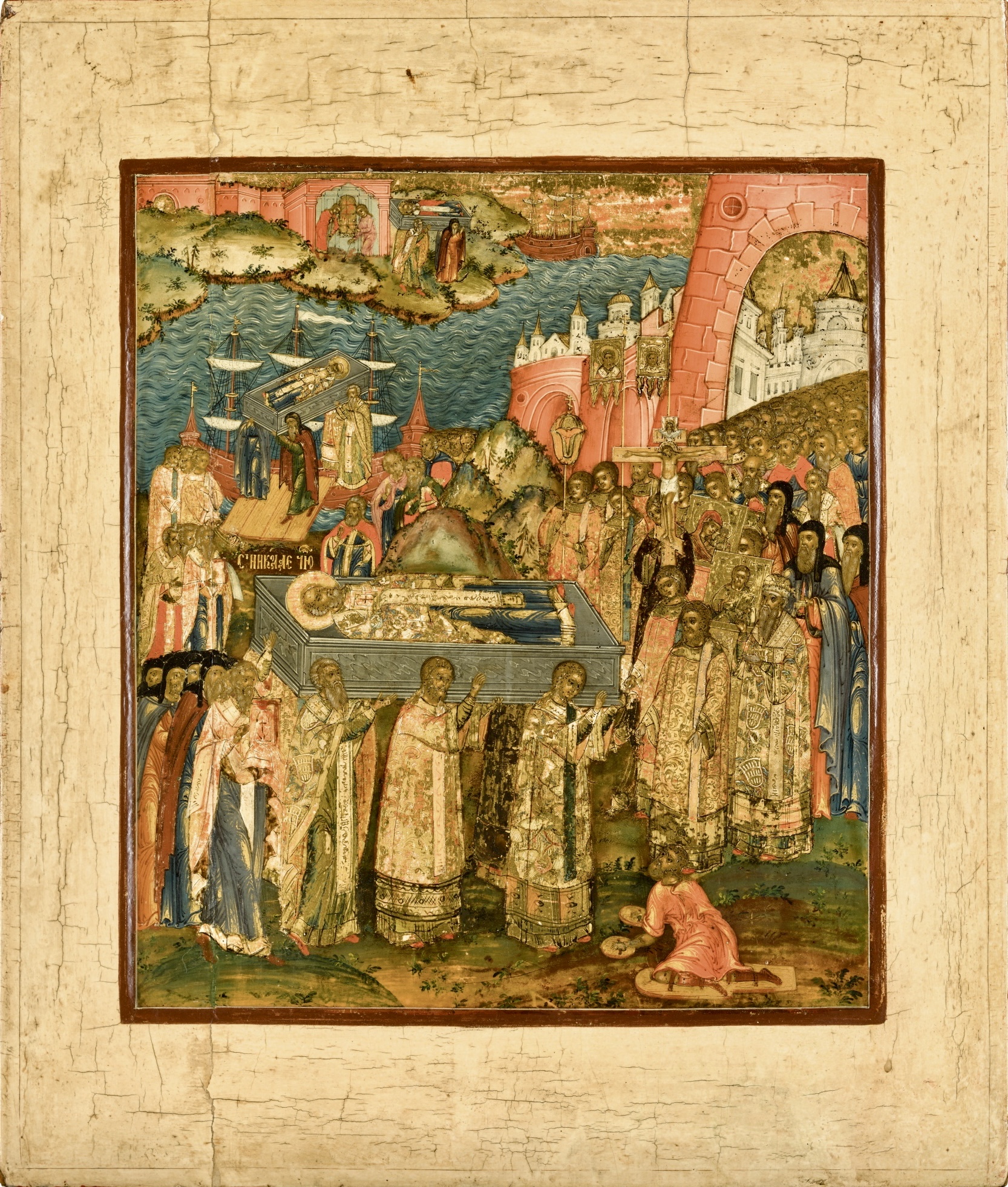
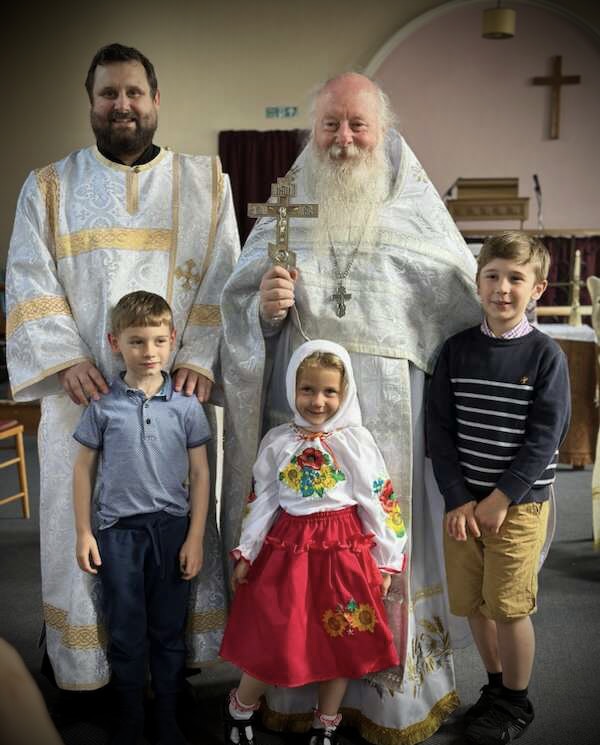

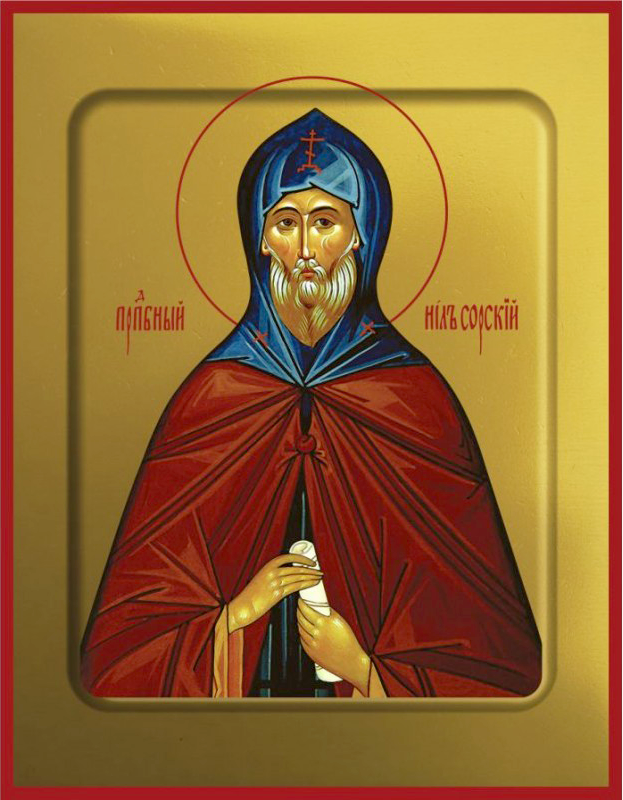
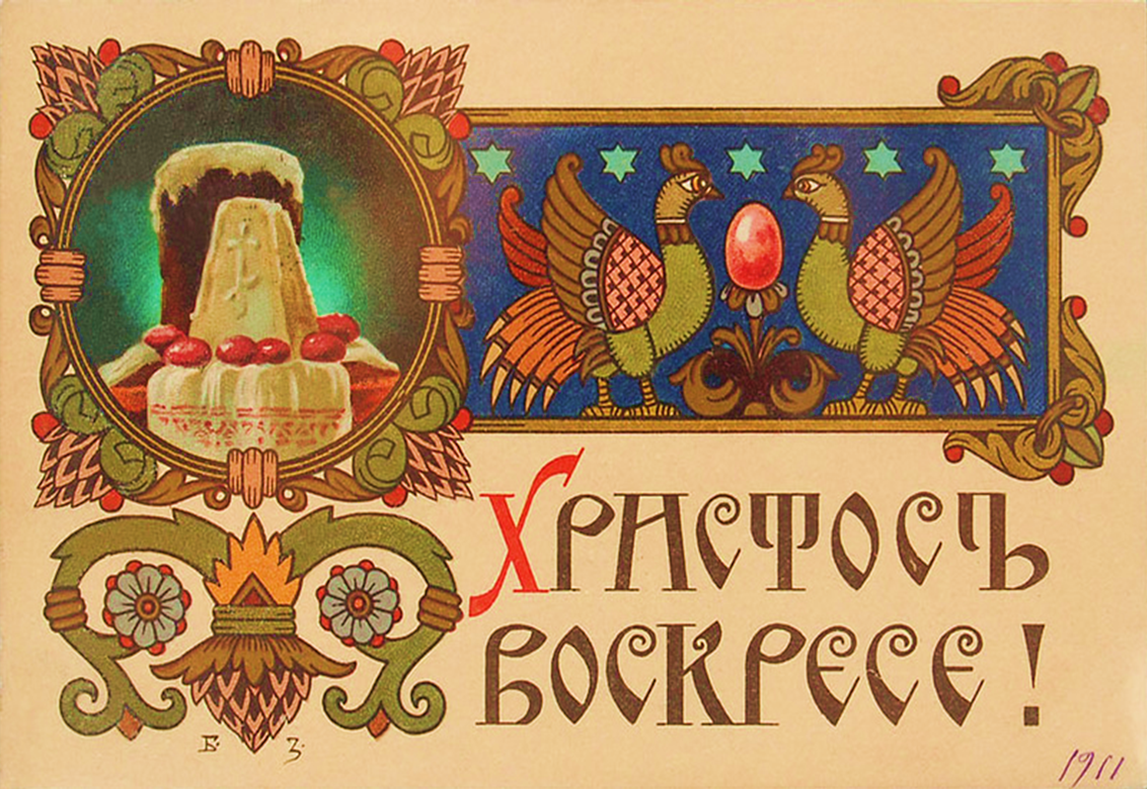 Christ is Risen!
Christ is Risen!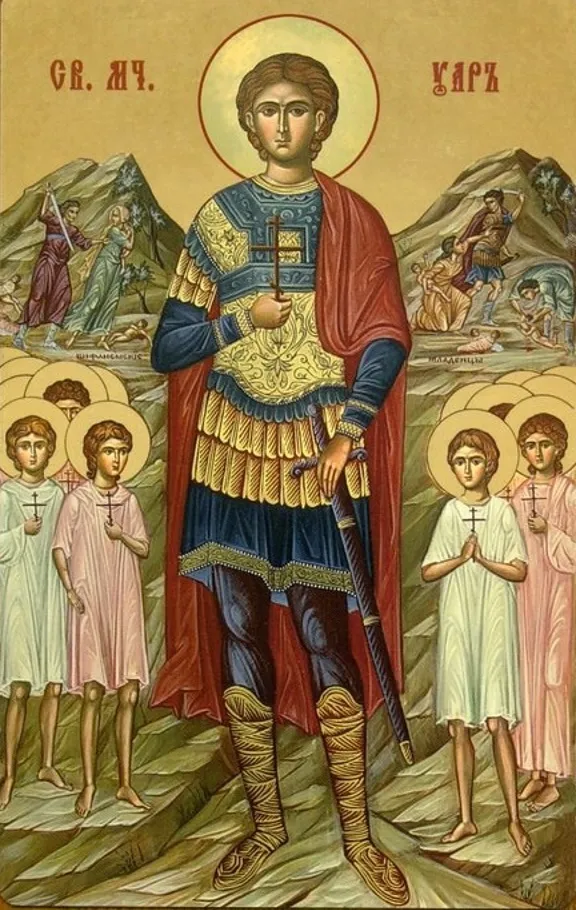
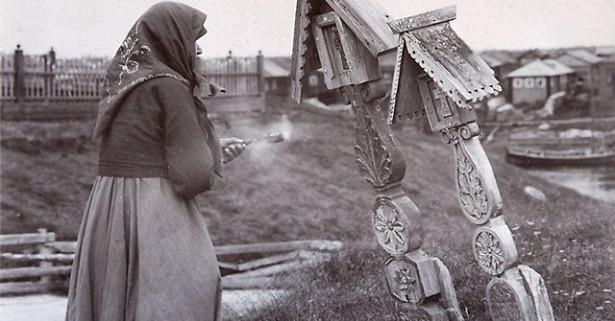
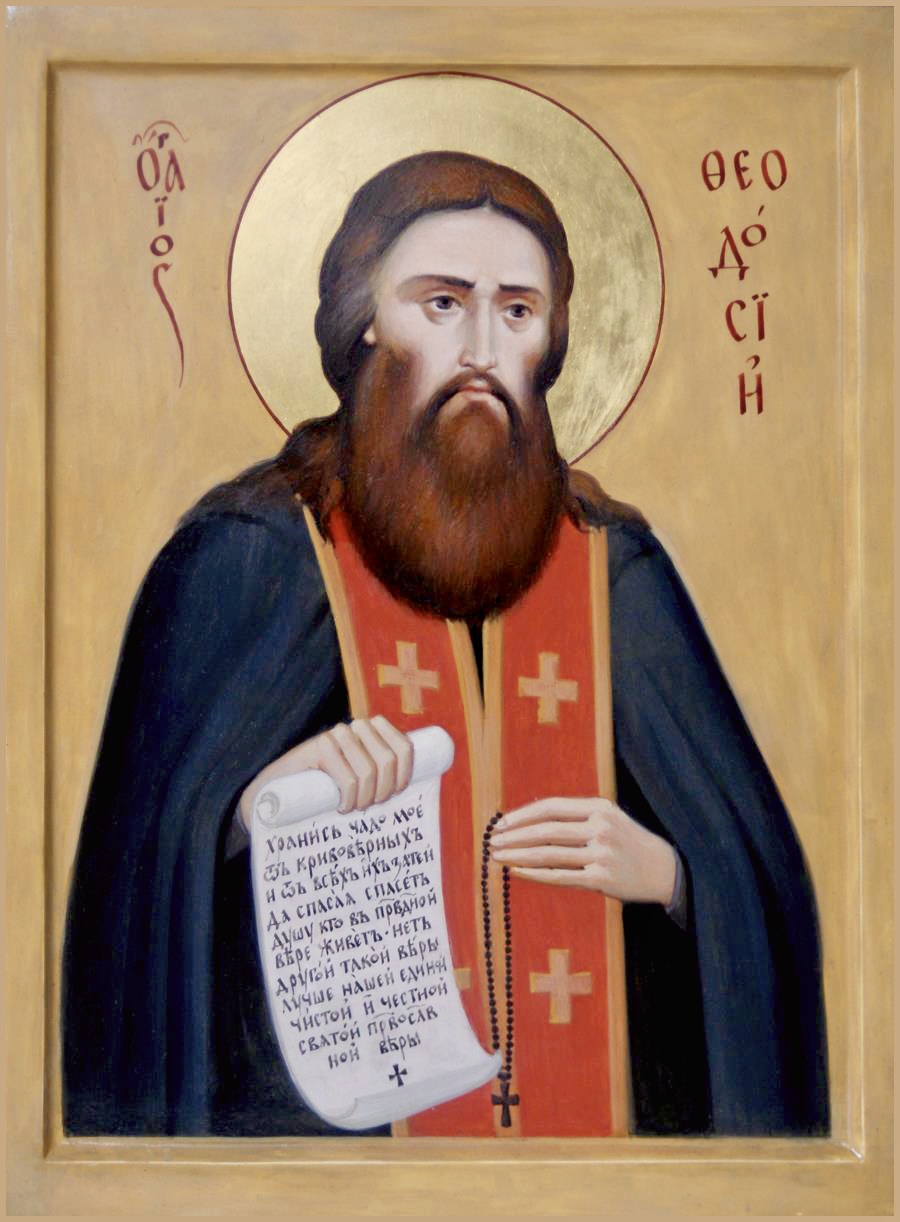
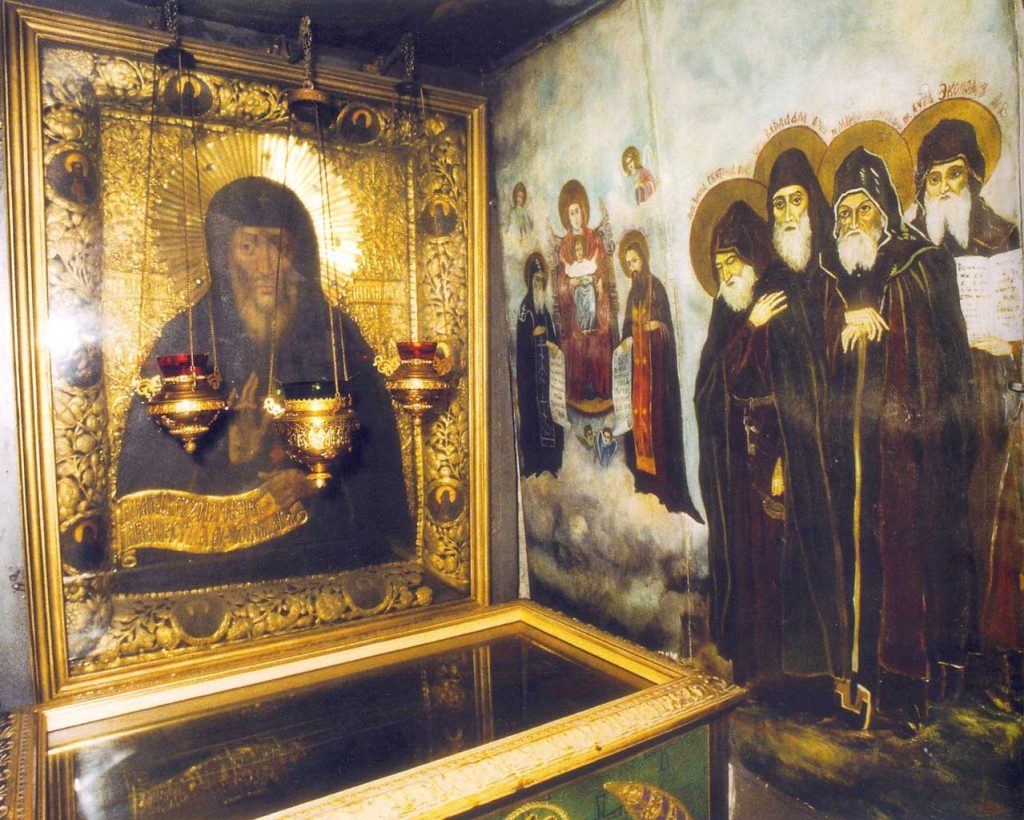
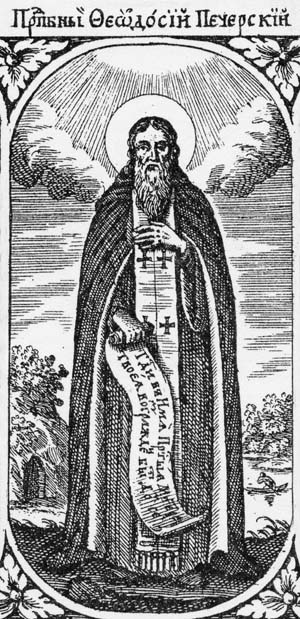
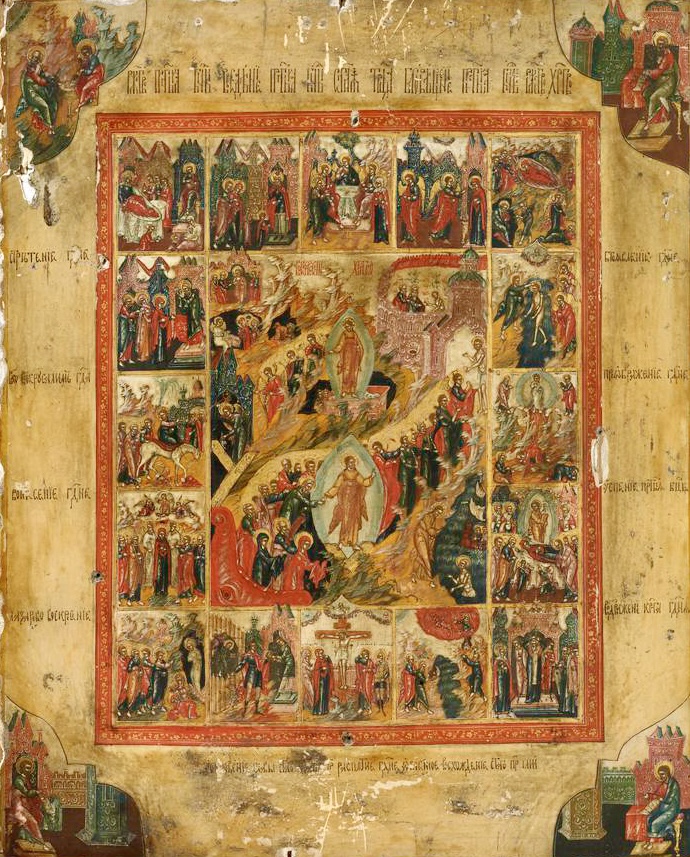
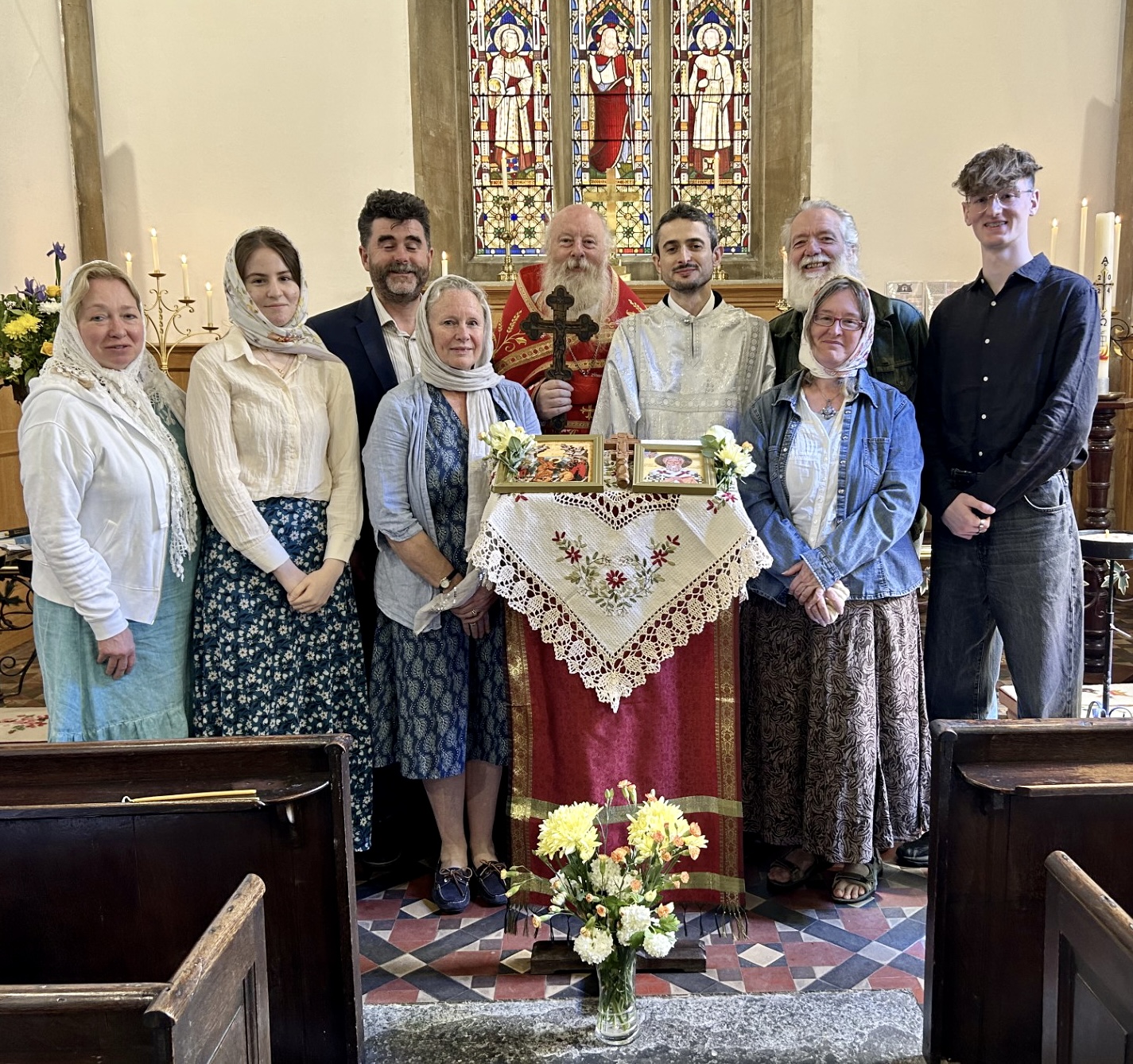 Dear brothers and sisters, Christ is Risen! Христосъ воскресе! Hristos a înviat! Χριστός ἀνέστη!
Dear brothers and sisters, Christ is Risen! Христосъ воскресе! Hristos a înviat! Χριστός ἀνέστη!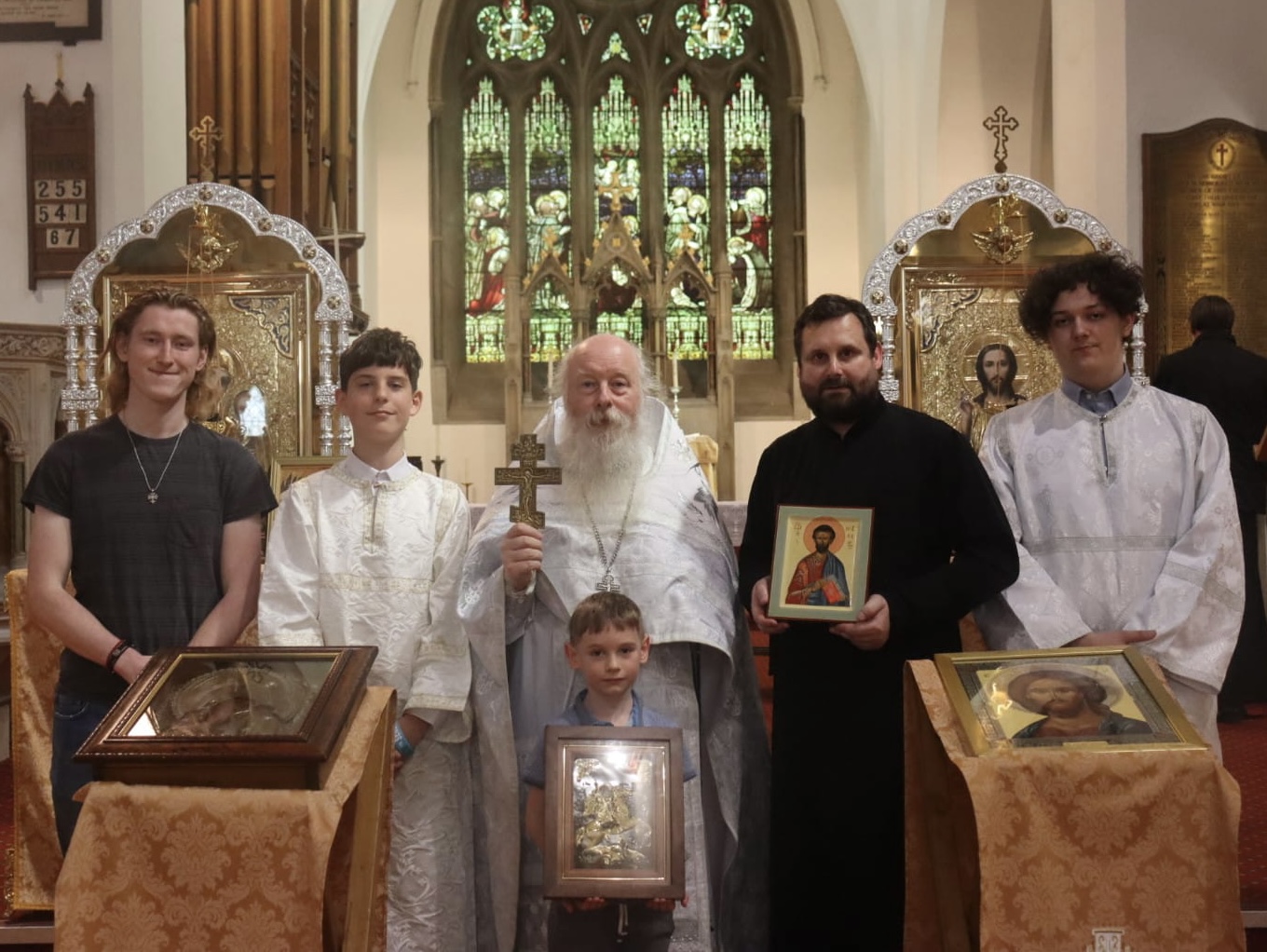
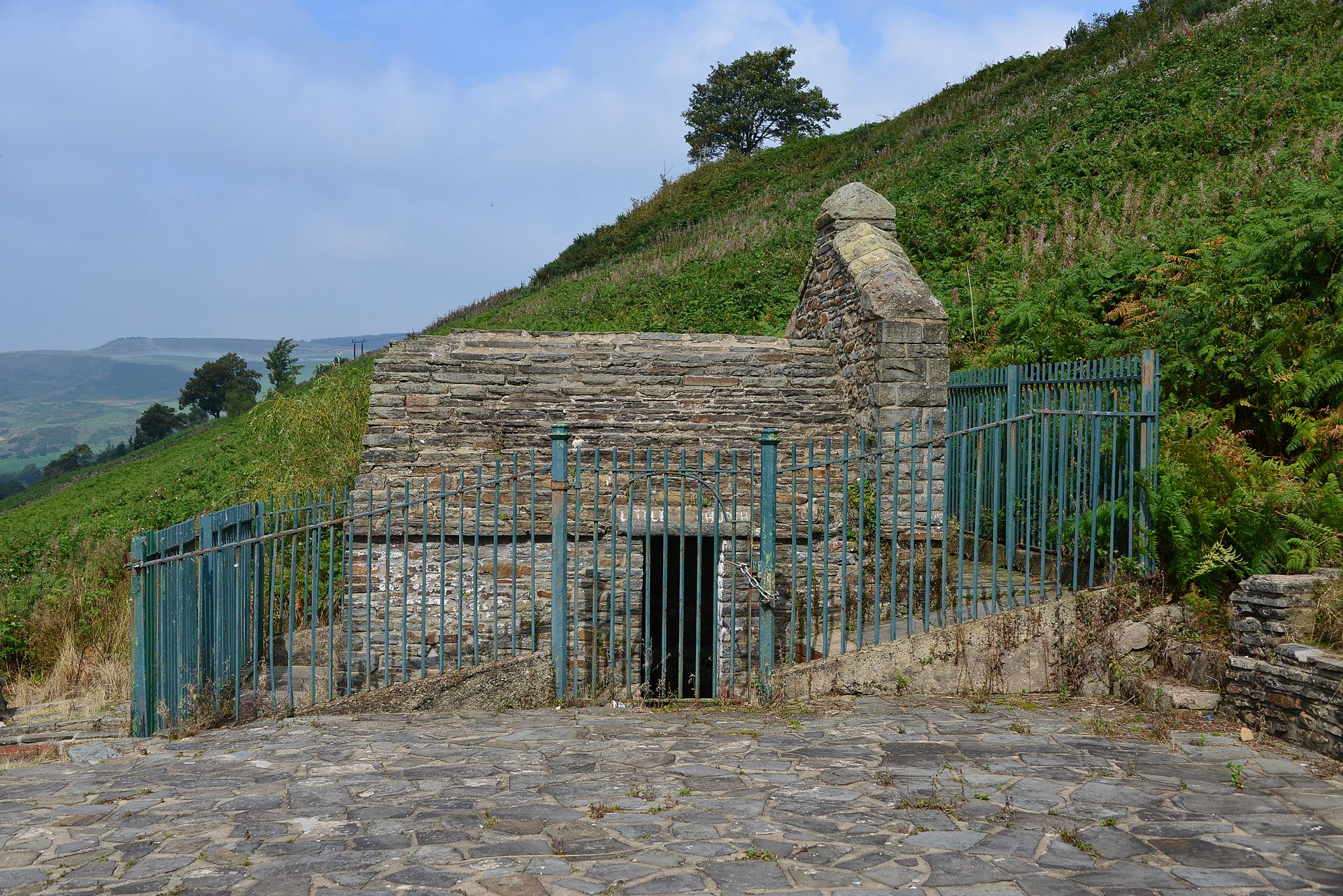

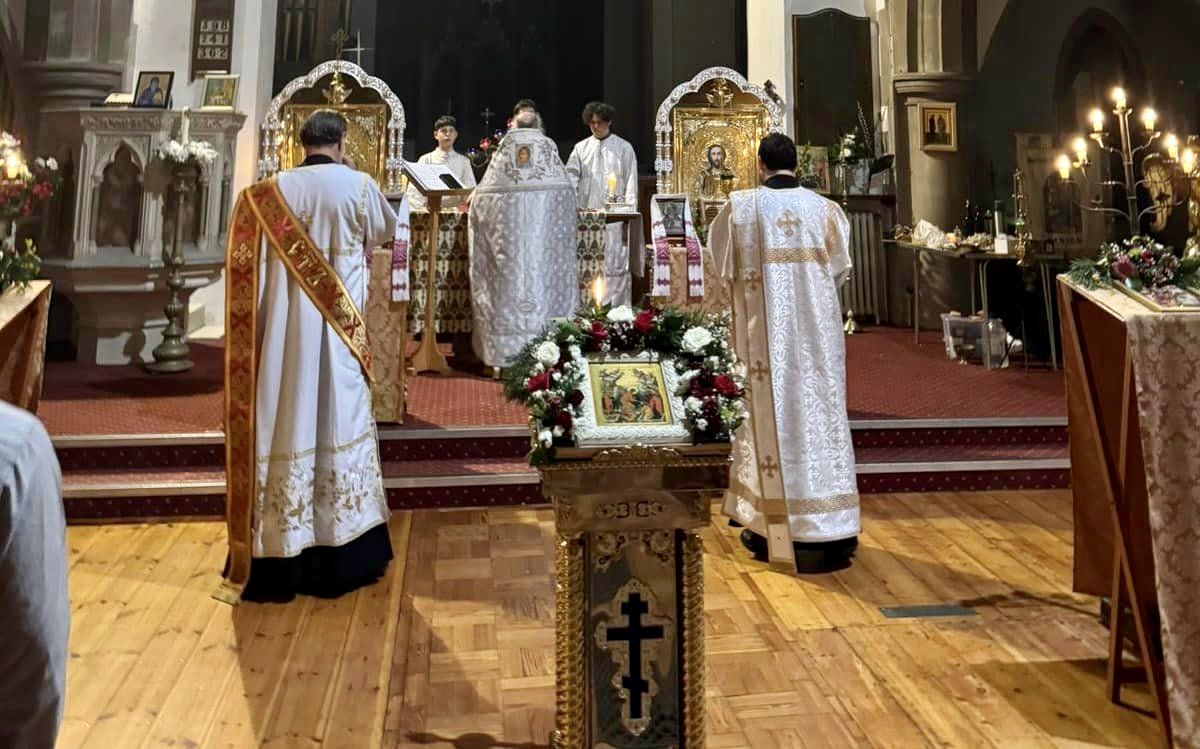 Dear brothers and sisters, Christ is Risen! Христосъ воскресе! Hristos a înviat! Χριστός ἀνέστη!
Dear brothers and sisters, Christ is Risen! Христосъ воскресе! Hristos a înviat! Χριστός ἀνέστη!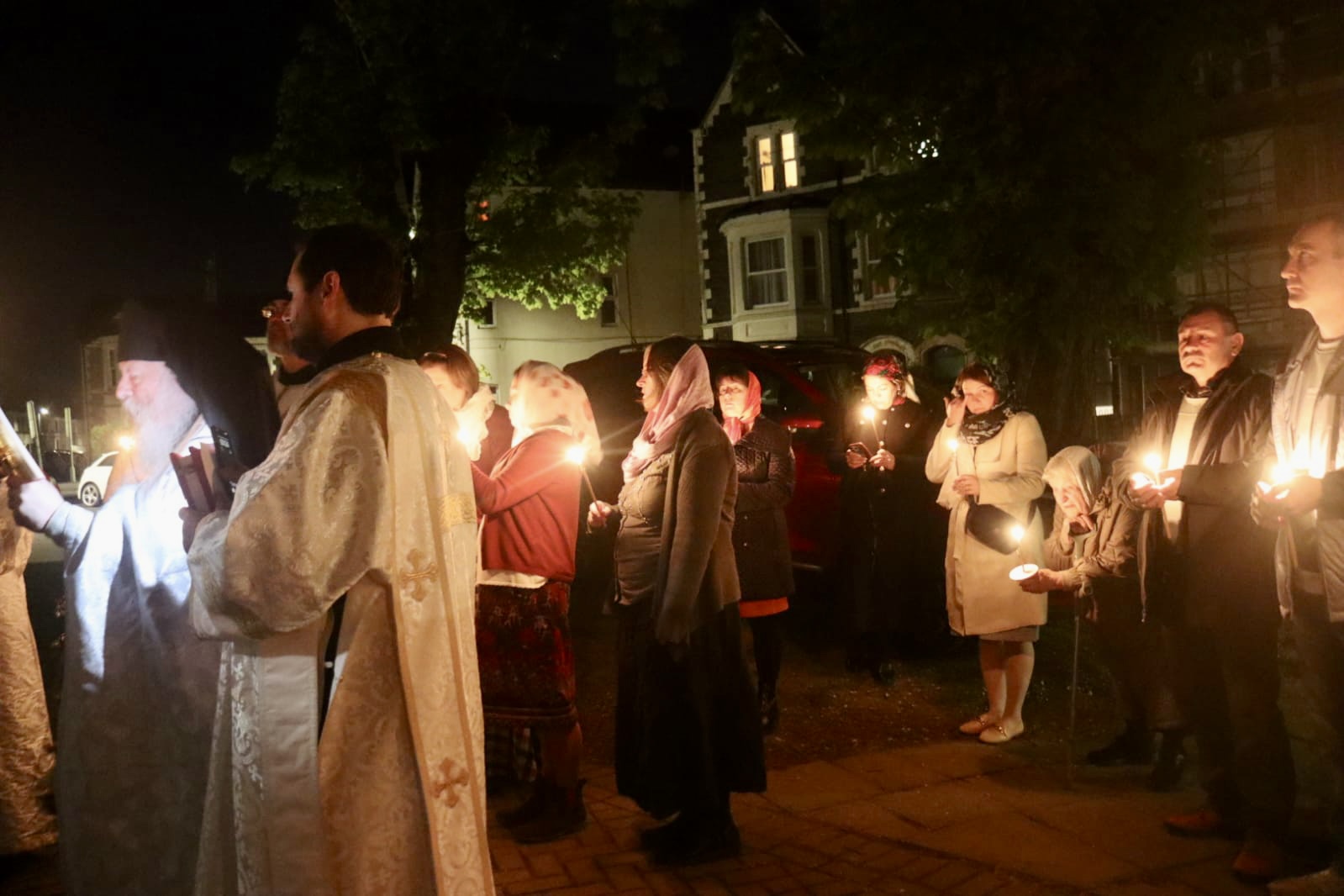
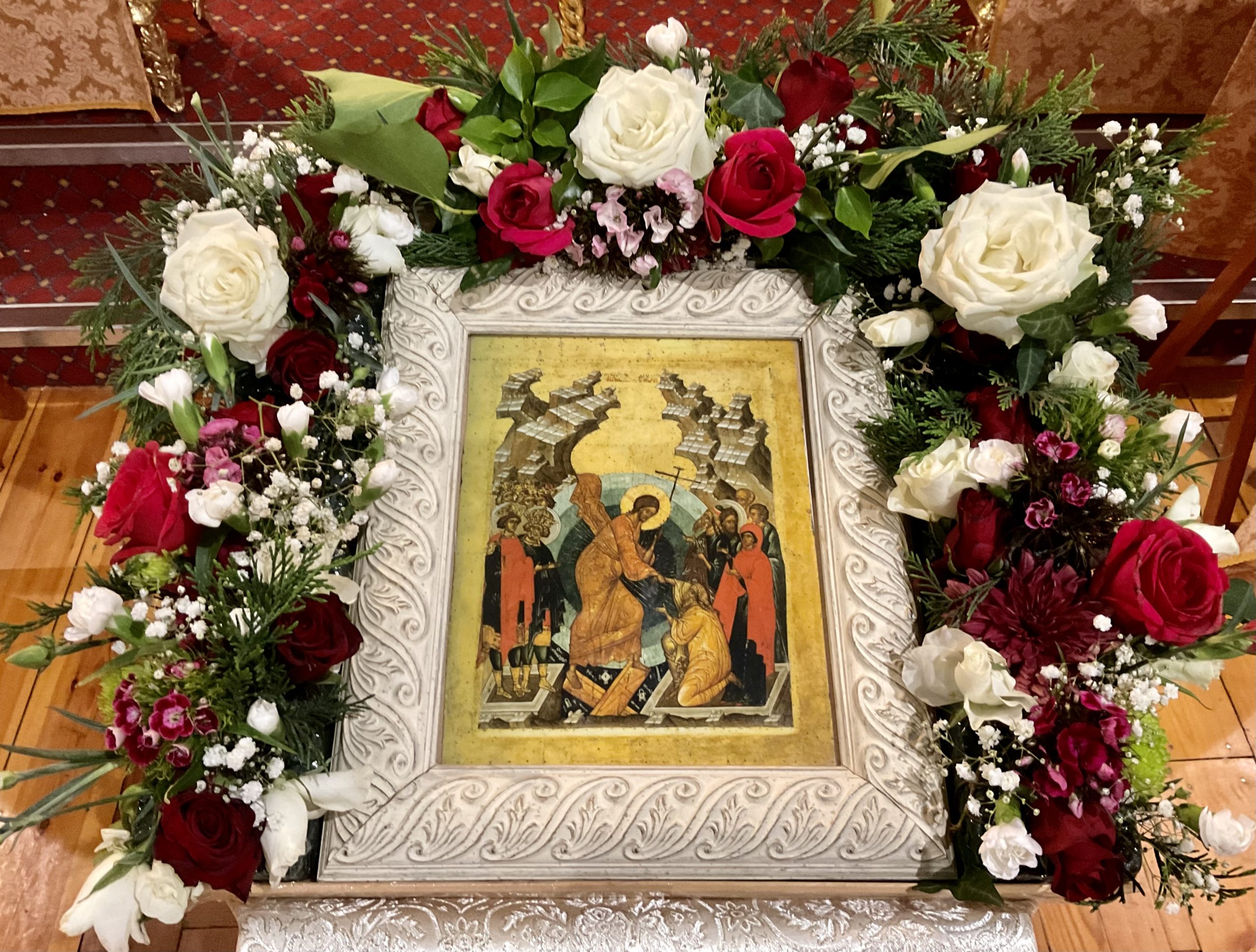
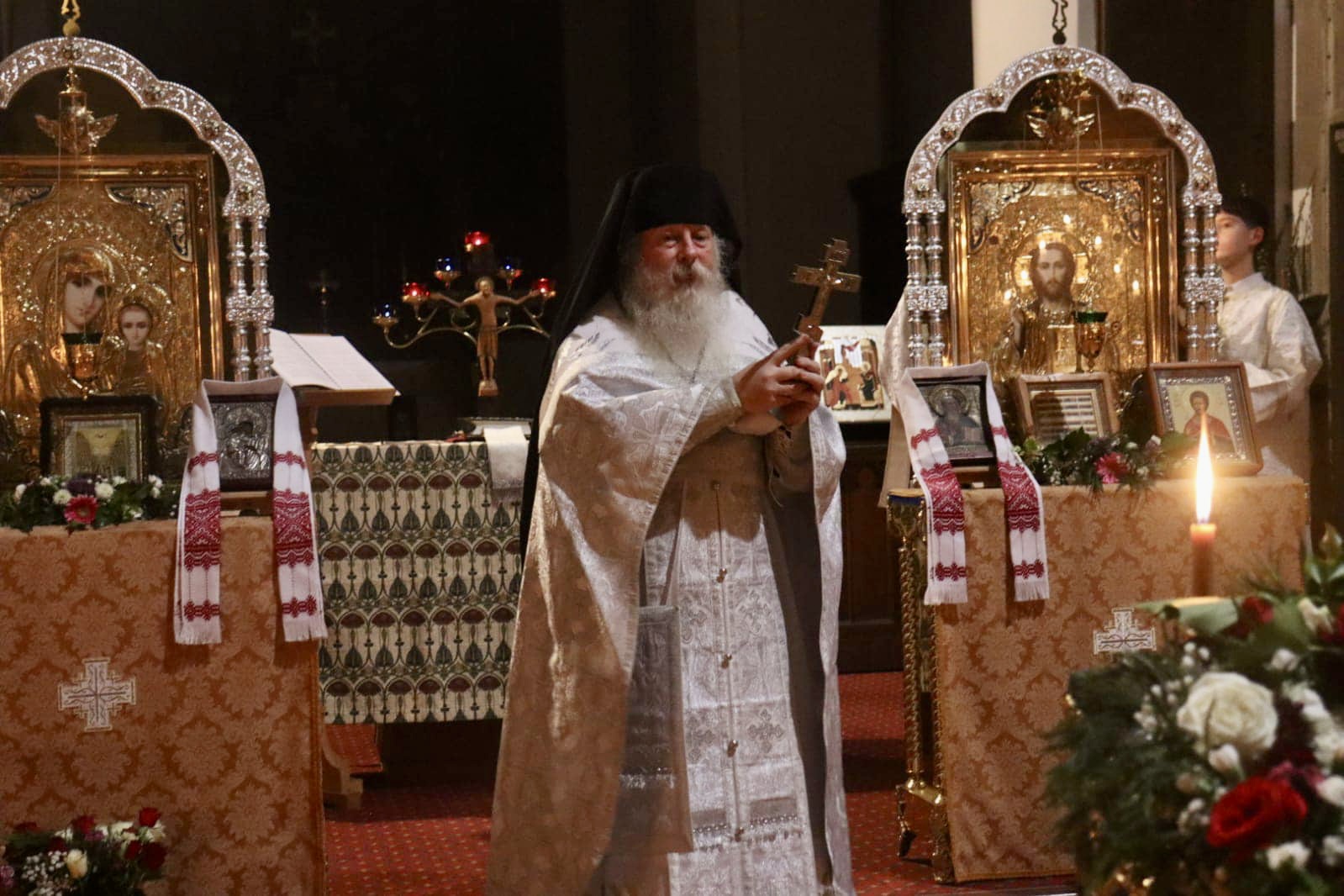

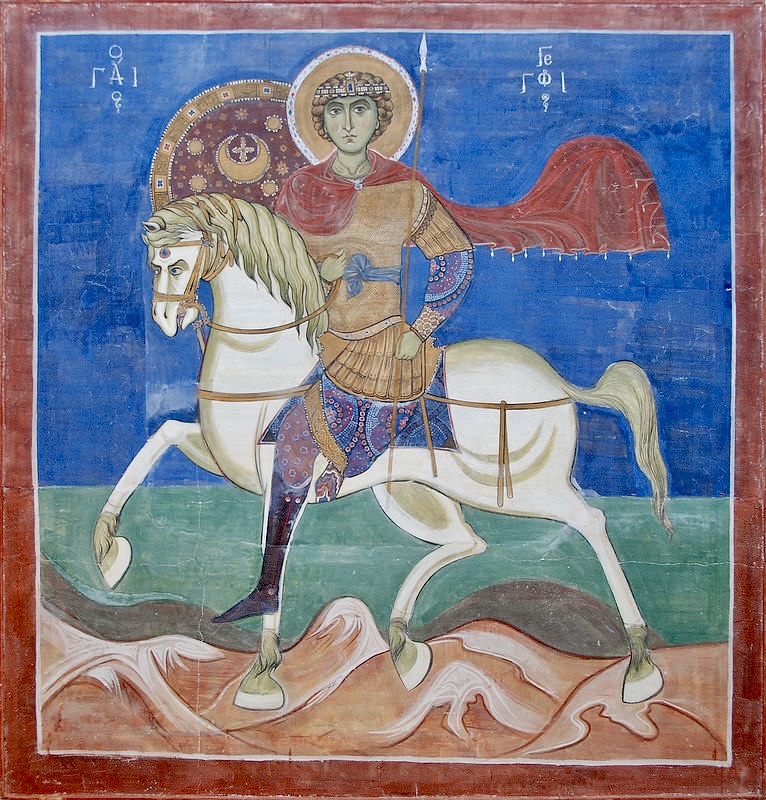
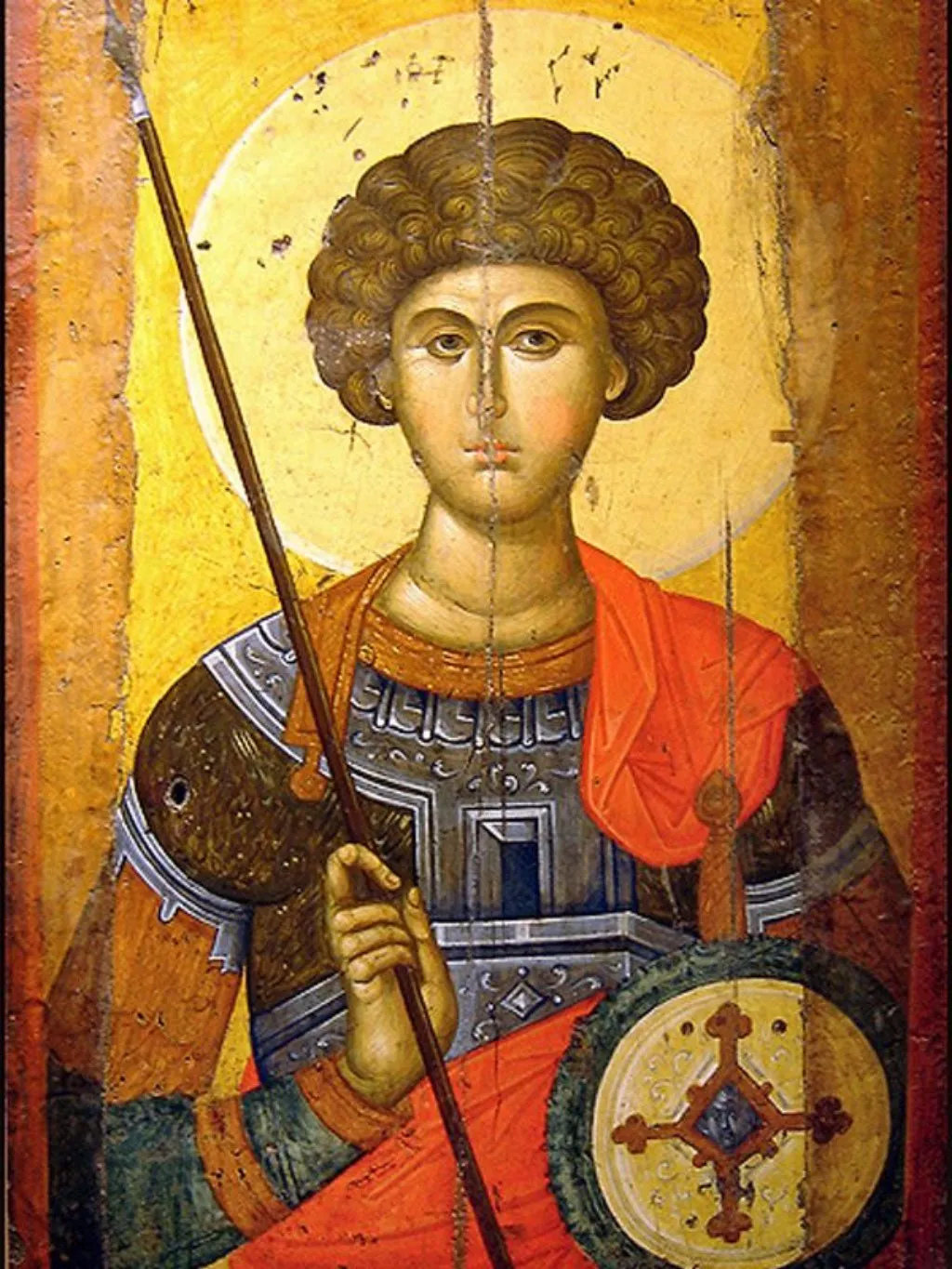
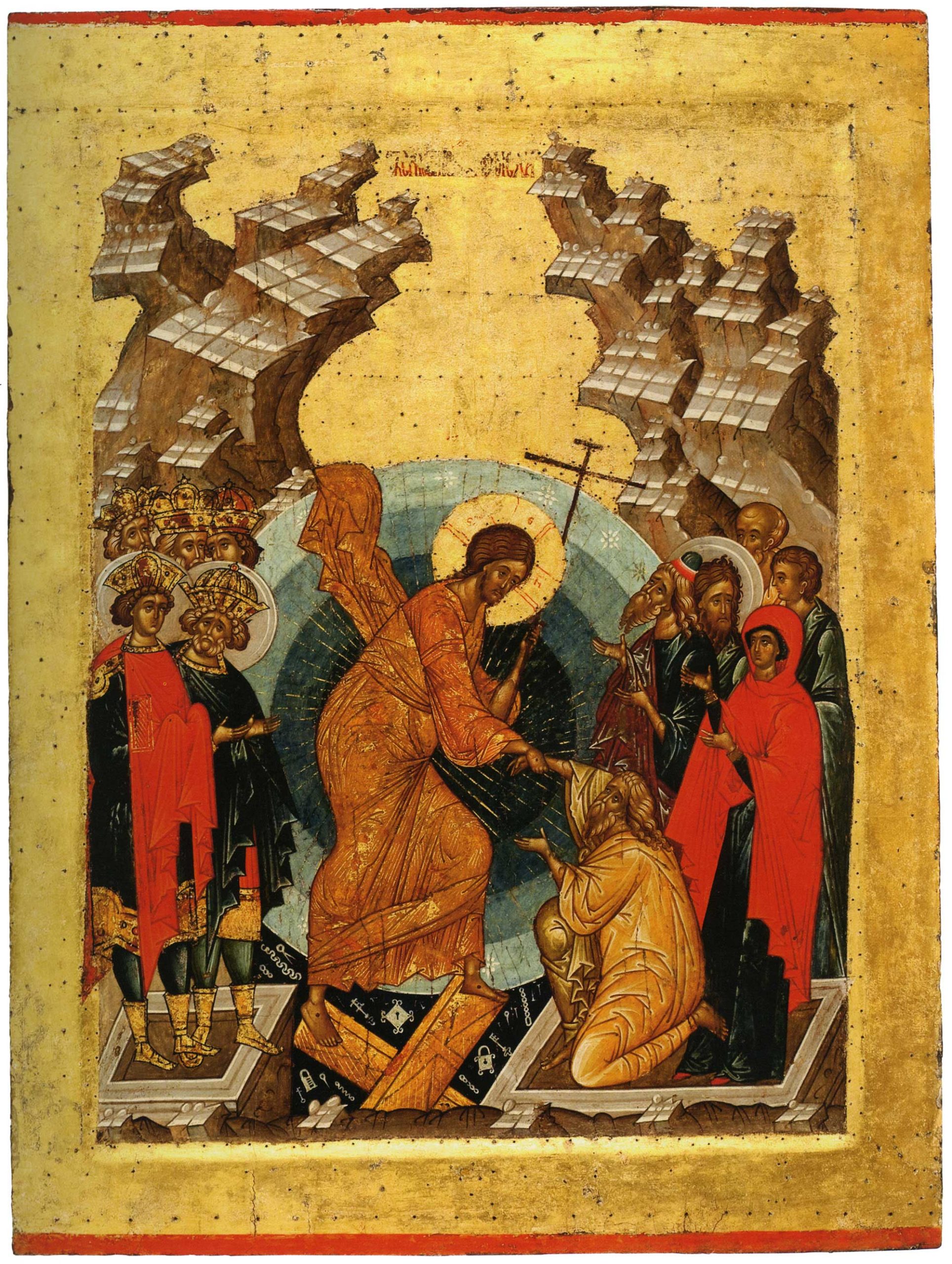 Dear brothers and sisters, Christ is Risen! Христосъ воскресе! Hristos a înviat! Χριστός ἀνέστη!
Dear brothers and sisters, Christ is Risen! Христосъ воскресе! Hristos a înviat! Χριστός ἀνέστη!